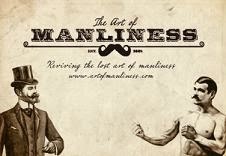In an age with a growing middle class whose members were often unsure of themselves socially, the etiquette book flourished as never before. Figures such as Florence M. Hall and the editors of godey's Lady's Book and Magazine in the US, Madame Emmeline Raymond and baroness Staffe in france, and numerous anonymous British writers (sometimes desginating themselves 'one of the Aristocracy', or 'an Officer's Widow', or the like) - all at various times published their advice and opinions on a wide variety of social issues.
Victorian Etiquette
"Gentility is neither in the birth, manner nor fashion, but in the mind. The high sense of honor and determination never to take advantage of another and adherence to truth, delicacy and politeness toward those with whom you may have dealings are the essential and distinguishing characteristics of a gentleman".
1) To be a gentleman one must walk like a gentleman. A shallow or impudent brain will show in his heel.
2) Always conform your conduct as near as possible to the company with whom you are associated, even if this be difficult.
3) when accompanying a lady into a public place, proceed her through the room and prepare seats for her.
4) Never allow a lady to get a chair, ring a bell, pick up something dropped - in short, never let her perform any service for herself which you can perform for her while in the room.
5) Always remove your hat when entering a room. A gentleman never leaves his hat on in a room, even if alone, unless there is no place for him to put his hat.
6) Never sit while a lady is standing, without offering to find her a chair. If you take a lady to an opera or the theater, remain with her, seated and do not talk during the performance.
7) If you are not with a lady, offer a lady your seat if there is none available, even if it is the best seat in the house.
8) It is preferable to find a lady another seat if available, rather than offering her the seat in which you have been sitting, and is still warm.
9) Ladies should wear hoods to the opera, remove these upon entering the room. Bonnets can be worn, but they are not best.
10) Ladies gloves should be worn in all public places and in church, and do not take them off to shake hands.
11) If you wish to meet someone in a room make it look like an accident, don't let them see you searching them out.
12) Do not cross a room in an anxious manner.
13) Never lose one's temper.
14) If one is asked to play an instrument or sing either say yes or no, but do not wait for others to beg you.
15) Never smoke in the presence of a lady, even if she does say it's okay. Never smoke in a parlor, as it leaves an odor offensive to everyone else.
16) Guard against excess in drink and smoke.
17) It is impolite to spit in public or around ladies.
18) Never ridicule.
19) Never talk religion.
20) It is impolite to frequently consult your watch.
21) Never read in the company of another, but one can look at someone's sketches or engravings.
22) Showing affection is brazen vulgarity.
23) Never command anyone to do anything. A gentleman always requests.
24) Don't "buttonhole" a person into a conversation. Don't kick them into a table or give dirty gestures across the room. This is impolite.
25) Don't talk of other's failures.
26) Don't talk of anyone if all of the listeners there do not know the person.
27) Never sit in the chair of the lady or gentleman of the house, even if they are not in the room.
28) Never use another's snuff box, unless offered.
29) Don't lean your head against the wall. You will either ruin the paper or you'll get lime in your hair.
30) Don't touch any ornaments in anyone's home that you visit.
31) In the company of an inferior, never let him feel inferior. If you invite someone of an inferior class, such as an employee, treat him as you would any other member present.
32) Never break an engagement, be it business or social, especially with a lady.
RULES FOR CONVERSATION
"The silence that, without any deferential air, except with polite attention is more flattering that compliments, and more frequently broken for the purpose of encouraging others to speak, then to display the listener's own powers. It is very impolite to praise one's children, one's relatives, one's land, horses, dogs, anything of that type, for it disallows the listener all power to dissent and is therefore, clearly objectionable.
1) There are many no's in conversation, however the simplest statement seems to be not to speak of one's self, or one's self importance but speak to others only on subjects which you feel they are interested in.
2) Do not speak in conversations if you have nothing of interest to say to someone.
3) Never contradict in conversation nor correct facts if wrongly stated.
4) Subjects particularly of interest should be books, balls, bonnets, metaphysics, traveling, the weather.
5) It is much more a useful ability to yield a point than to argue it.
6) Conversation must neither be too high nor too deep for the party at large so everyone may contribute his share.
7) A gentleman will avoid showing his learning and accomplishments in the presence of ignorant or vulgar people, who by no possibility can understand and/or appreciate this.
8) If you wish to inquire about anything, do not do it by asking a question. Example: Do not say, how is your brother today? but, I hope your brother is quite well.
9) Never ask a lady a question about anything.
10) Avoid the use of slang terms and phrases in polite company. Those terms belong to barrooms and other low places.
11) You need not tell all the truth in a conversation, but let all you tell be the truth.
12) If a favor is asked of you grant it if you can. If not, refuse it in a manner that one denial may be sufficient.
13) If you are in the company of a distinguished gentleman, as a governor or senator, introduce him as such at one time, and afterward avoid using his rank. let is not good taste for a lady to say yes sir, or no sir, or to frequently introduce the word sir at the end of a sentence, unless she desires to be exceedingly reserved toward that person.
14) To use phrases with double meanings is positively insulting.
15) Avoid speaking too frequently of acquaintances with celebrated men unless you are a public man yourself.
16) Avoid talking of the opera in the presence of those who do not frequent it.
17) Never ask anyone who is conversing with you to repeat his words.
18) Always refrain from explaining any expression or word you may use.
19) At all cost shun the vulgar habit of joking at the expense of women.
20) Never take a person aside to whisper in a room with company in it.
21) Never over-praise an absent person, especially in the presence of a lady. It may bring hatred upon those absent.
22) Don't give advice.
23) Avoid flattery.
INTRODUCTION
"The custom which prevails in country places of introducing everybody you meet to each other is both annoying and an improper one. As a general rule introductions ought not to be made except where there is undoubted evidence that the acquaintance would be mutually agreeable and proper".
1) If you are present in a friend's home and find an agreeable person who seems desirous of making your acquaintance, there cannot be any objections to your meeting his advances half way, even without the introduction, as you are in a friend's home. (~It stands for gentlemen).
2) It is customary to present the youngest to the oldest, the humblest to the highest position. In introducing a gentleman to a lady, address her first, thus "Miss Jones, permit me to present you to Mr. Smith"? or "Mr. Thompson, I have the pleasure of presenting to you Mr. Johnson". when a lady is married and the other is single, present the single lady to the matron, "Miss Harris, allow me to introduce you to Mrs. Smith".
3) In introducing a foreigner, present him as Mr. Leslie, from England, or Mr. LaRue from France, or when introducing a friend who has been traveling to different lands, address him as Mr. Dunlap, lately of France, or recently from Italy.
4) When presenting a governor, designate the State he governs, such as "Governor Carruthers of New Mexico". A member of Congress, the State to which he belongs.
5) When introducing the members of your own family mention them by name. It is not sufficient to say my father, or my brother, but rather my brother, Mr. Watson.
6) The eldest should be introduced by a surname, the younger introduced by a full name. Example: "Miss Sherwood" as the oldest, "Miss Maude Sherwood" as the youngest.
7) In presenting a clergyman, always place Reverend, or the Reverend Doctor before his name.
8) If you have been introduced to a person whose acquaintance you do not desire, you can merely make a formal bow of etiquette when you meet him, and you do not need to converse with him, but the bow is indispensable.
9) On introduction into a room, a married lady offers her hand, a young lady does not.
10) In general, introduction is not followed by shaking hands, only by a bow. In a ballroom where the introduction is to dancing and not friendship, you never shake hands.
11) The more genera rule is the more public the place of introduction, the less handshaking takes place.
12) If the introduction be accompanied by a personal recommendation, such as "I want you to know my friend", then you give this friend your hand warmly.
13) It is understood in society that once a person has been properly introduced, he has some claim on your offices in the future. You cannot, therefore, slight him without good reason.
LETTERS OF INTRODUCTION
Letters of introduction are to be regarded as certificates of respectability and therefore, are never to be given to someone unless you are sure on this point. In France and on the continent, one takes a letter of introduction personally.
1) In England and in America, the custom usually prevails that the party holding a letter of introduction never takes it himself to the party whom it is addressed, but sends it with his card of address, unless the letter he has is addressed to one many years his senior, or whose aid he seeks in some enterprise, then he may take it himself.
2) When a gentleman bearing a letter of introduction leaves his card, you should call or send him a note as early as possible.
3) A letter of introduction should be carefully worded with as few words as possible about the individual. It is sufficient to say that he is a friend of yours, whom you trust, who you would receive with attention. It is best to leave this letter unsealed.
STREET ETIQUETTE
STREET ETIQUETTE
In America the. fashion of acknowledging someone in the street is somewhat different than that in England and on the continent, but most feel that the American rule is better, because it is based on the general principle that is everyone's duty to be pout in all places.
1) If you have been introduced to a lady and then afterward meet her in the street, you must bow to her and she to you.
2) While walking the street, no one should neglect to recognize his friends. If you do not stop, you should always bow, touch your hat or bid your friends good day. If you stop, you can offer your hand without removing your glove.
3) If you stop to speak to a friend and he is with a stranger, first apologize to the stranger.
4) If you meet a gentleman of your acquaintance walking with a lady whom you do not known, lift your hat to salute them. If you know the lady, salute her first.
5) Never nod to a lady in the street, neither touch your hat, but take it off. It's a courtesy her sex demands.
6) If you meet a lady acquaintance on the street, do not presume to join her in a walk, without knowing that this is totally agreeable to her. Do not stop her but turn around and walk in her company. You can take leave of her at the end of the street. If she does not wish your company, she must frankly say so.
7) A married lady usually leans upon the arm of her husband. Single ladies do not, in the day, take the arm of a gentleman, unless they are willing to acknowledge an engagement.
8) When you are passing in the street and see someone coming toward you of your acquaintance, if it's a lady or an elderly person, you should offer them the wall, that is to say, The side next to the houses.
9) In walking with lady it is customary to give her your right arm, but a left arm may be properly done if circumstances make it more convenient. If walking on a busy street, that may be best to keep her from being jostled and run against by the hurrying crowd.
10) You should offer your Arm to lady with whom you are walking whenever her safety, comfort, or convenience may require it. At night your arm should always be tendered. Also when ascending the steps of a public building. You must accommodate your speed to the speed of the lady.
11) If a lady with whom you are walking receives the salute of a person who is a stranger, you should return that, if not for yourself, for her.
12) If you are accompanying a lady who wishes to go into a store, you should hold the door open and allow her to enter first, if practical.
13) No gentleman will stand in the doors of hotels or on the corners of a street gazing impertinently at ladies as they pass. It is the unmistakable sign of a loafer, and no well bred man would do such a thing.
14) Never offer to shake hands with a lady in the street, if you have on dark gloves, as you may soil her white ones.
15) After twilight, a young lady should not be conducting herself by walking hone. She should arrange for someone to pick her up at a certain hour. if this is not possible, she should politely ask the person she is visiting to permit a servant to accompany her. However, this may be disregarded by a married lady who finds it too much trouble to find someone. If the host wishes to accompany you himself, you must excuse yourself for causing so much trouble, but finish, however, by always accepting. On arriving at your home, you must see that someone in your home waits upon you, so that they can see that this is entirely an innocent affair and nothing further can be made of it. If you are shopping, and you are obliged to examine more than one article before you are satisfied, apologize to the shopkeeper for the trouble you are giving him. If you only make a small purchase, again apologize for having troubled him for such a traveling thing. If you must leave without buying anything, make your apologies for doing so.
16) It is usually more agreeable to both parties to leave gloves on when shaking hands.
17) In needing to step Over something or tripping over the pavement, a lady should gracefully raise her dress slightly above the ankle with her right hand and draw her gown toward the right side. To raise the dress with both sides and both hands is vulgar.
TRAVELING
TRAVELING
As a general rule, travelers are selfish and tend to ignore the rules of etiquette, however it is most important to try not to do this.
1) Try not to push and rush. It is best to do things in moderation. Go earlier to the station if necessary.
2) Never allow consideration of personal comfort or convenience to overcome your regard for the rights of fellow travelers.
3) If you find a seat that has an overcoat or a carpetbag on it, but no one sitting in it, it is not polite to take this seat, even for a lady.
4) It is not always necessity for a gentleman to rise after he is seated and offer a seat to a lady, if the lady is accompanied by another gentleman, for there may be other seats. But, if a lady comes alone and all the seats are filled, then it becomes necessary. If a lady motions to sit in the seat next to you, you must rise and offer her the choice of the two seats.
5) You may leave your hat on when helping a lady into a carriage in America, as both hands may be needed. It is not polite on the Continent.
6) It may not be exactly correct for a lady to make a speaking acquaintance of a gentleman in traveling, but she may address or question him for the time being without an impropriety.
VISITING
These are comprised of such ceremonies as customary calls of friendship, condolence, such visits that are necessary in order to maintain good feeling between members of society.
1) Visits of ceremony must be necessarily short and not made before the hour of lunch time. Half an hour is sufficient time. These visits may not always be made necessary by businessmen, a they may not have time. These visits are such as to talk someone for dinner the night before.
2) A lady should neither remove her shawl nor bonnet, even if politely asked, unless they are in the presence of a particularly special friend, and then only with the help of the lady of the house.
3) Always leave children at home, or if they do accompany you, leave them in the carriage until your visit is over. If you have an infant, the nurse may await your return or stay in an anteroom, unless a specific request to the contrary has been made.
4) When other visitors are announced, retire as soon as possible, without letting it appears as their arrival is the cause.
5) If your acquaintance or friend is not at home, leave a card.
6) Visits of courtesy and ceremony are usually paid at Christmas, New Year, and at holidays, good examples of these type of visits.
7) In visiting your intimate friends, some ceremony may be dispensed with and visits with these people, a mere ceremony is unnecessary.
9) In leaving cards, you must distribute them; one for the lady of the house, others for her daughters, a note for the master of the house, but you must never leave more than 3 cards at a house, at a time.
10) Since married men are supposed to have too much business to attend to make ceremonial calls, it is customary for their wives to take their husband's cards and to leave one of their own and one of his.
11) Upon your arrival, if Miss Jones is home, but Mrs. Jones is not at home, you should leave a card, because young ladies do not receive calls from gentlemen, unless they are very intimate with them.
12) Remember when you do make the call that your call is to the wife and not to the husband, except on business matters.
13) Try to check carefully on the hour that you choose for your visit so that you are not interfering with household programs.
14) A well bred person always receives a call, even if it's inconvenient. However, you can instruct a servant to say you are not at home, and this will let someone know that you are busy and it is inconvenient at this time. But if a visitor has been admitted to the home or is within the hall, then you must receive him regardless of the inconvenience.
15) A visitor does not wait to be invited to sit down, but takes a seat at once easily. he should not take a principle place in the room, however or sit at an inconvenient distance from the lady of the house.
16) Young married ladies may visit their acquaintances alone, but they may not appear in public places unattended, either by their husbands or elder ladies.
17) Gentleman are permitted to call on married ladies at their home but never without the knowledge and full permission of the husband.
18) Ladies may walk unattended in the street, being careful to neither walk with a hurried step, do not stand in front of shop windows and stare in, to not look backward, or send to notice anyone who ventures to address you. Be sure that you get home before dark and do not be out even after dusk.
19) A lady never calls on a gentleman unless professionally or officially, and then it would be with the knowledge of her husband.
20) If a lady enters a room, She is requested to sit on the sofa by a gentleman. If several ladies arrive, due respect is paid to age and rank and they must be seated in the most honorable places; one of these is beside the fire.
21) If you let a lady occupy a seat and a lady older or superior than herself enters the room, she must immediately rise and give her that seat.
22) It is very discourteous to continue with needlework when visitors are in the room.
23) Visits of condolence should be made within a week.
24) Gentlemen will always carry their hat in their hand, do not look for a table or chair to put it on, but always hold on to it gracefully.
Victorian Dining And Dining Etiquette
By George Matel
Meal times were special occasions in the Victorian homes and eating started with making sure that you were properly dressed for the event. While you could dress down slightly for meals at home, any outside dining event that took place after 6PM was automatically a formal occasion. Ladies were expected to wear low-necked gowns with short sleeves and gloves. Married woman opted for satin or silk while the unattached arrived in muslins or chiffon. Men always wore dark broadcloth and "fine linen."
Male guests were each assigned a female guest to escort into the dining room. The host always escorted the highest ranking lady, a newcomer to the area, a new bride, or the wife of a distinguished guest. The hostess was escorted by her husband's business partner or best friend.
The formal Victorian dinning room might be called a banquet hall today. It was usually quite large and lavishly over furnished as was the custom of that time.
There were extensive decorations including massive decorative furniture pieces, stuffed birds in cages, ceramic and china figurines, potted plants and a huge mirror among other items. The centre of attention was always the finely set table of abundance in the middle of the room.
Perhaps the term "finely set" is an understatement. The goal of the hostess was to display every piece of fine china, stemware and silver she owned, so it wasn't uncommon to find 24 piece place settings including up to eight different forks each with their own special purpose. Add to that an additional 8 knives, game shears, 7 pieces of stemware for water, wine, sherry and more, a dinner plate, and a bread plate containing a single piece of bread, and you'd think that there couldn't possibly be room for the food; but they found a place anyway!
Most formal Victorian banquets were like an all-you-can-eat buffet except you sat down and the endless stream of up to nine courses were brought to you instead. Ample time was allowed between courses for conversation and digestive processes.
Once the meal was over, the servants brought water-filled finger bowls each containing a slice of lemon. The hostess signalled that it was time for the woman to leave the table by making strong eye contact with the woman seated to the host's right and then standing up. A servant or nearby gentleman opened the door to let the woman retire to the drawing room while the men either remained at the table for more conversation or withdrew to the library to enjoy a fine cigar and a glass of port.
Victorian society dictated that each invited guest, whether they actually attended or not, should call upon the hostess in person within a week after the event to pay their respects. Custom allowed that men who were too busy with business affairs could send their card via their wife or another female relative.
Yes, it all sounds like a bit too much work just to enjoy a good meal, but these were different times when pomp and circumstance still held a special meaning. Who knows? Perhaps we could use a little of that back in our lives today.
You can learn more about victorian dining and etiquette by visiting http://www.thecooksguide.com a site brimming with historical recipes and household management wisdom imparted by the celebrity chef of his time Charles Elme Francatelli


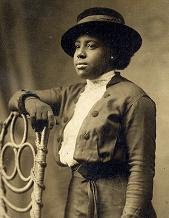
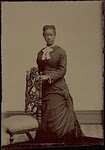
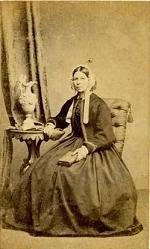





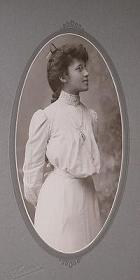.jpg)
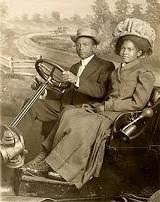.jpg)
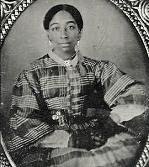.jpg)
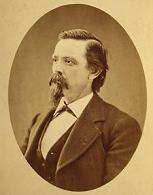.jpg)
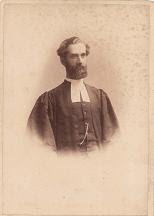.jpg)


